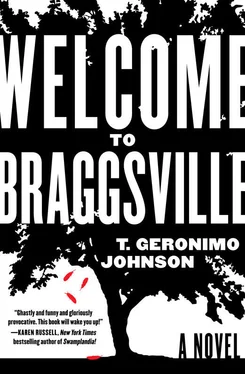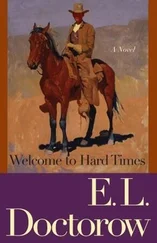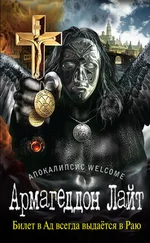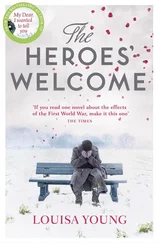Quint eyed him like he was a predator circling, looking for the easiest angle of attack. You ain’t got no business in the Holler. Not now. I’ll gamble this much for you, D, ain’t no Bat-Signal for the Joker. Sort them screws. Now, what about the Gully? You wanna walk back there?
Is it safe? Daron asked. He hadn’t been in years, had only a faint memory. Spice. Wood. Snatches of bronze.
I do it all the time.
Is it safe?
Quint laughed.
From inside, Maylene shouted, Why don’t you leave them people alone? You act like you don’t get fed over here. I see ’em looking at me all funny when I take labels down to shipping.
They’re admiring your nails is all. He slapped Daron on the knee and set off toward the tree line, their backs cooling where the nylon webbing had cut wet lines.
The sweet-smelling wood, the soft pine needles underfoot soon gave way to a path born more of use than planning, a gravel lane worn nearly to dirt and hugged by elms choked in bramble, which they followed until it forked, downhill to the left and uphill to the right. On the right was a collection of mailboxes, maybe twenty, several of which Daron had met in a previous life with an aluminum Louisville slugger, as well as several blue boxes labeled COUNTY EXAMINER, a few of which had not recovered from their own interrogations, that local version of the great American pastime. D’aron, much to his credit, he’d once thought, was only blowing off steam, and never once — not even one time — cracked lip when the others asked, Who writes Gulls anyway, and when they get a letter, who reads it to them? He now wondered how much of his fear about coming back here was actually guilt, and how much of the guilt was fear — nothing was as it seemed.
That way’s the river. Quint pointed uphill. This way’s the Gully.
They walked toward the Gully, the gravel sometimes glowing hazy in the moonlight, other times only a sound or a sharp stinging in the sole. The houses were far apart, not as far apart as they were on his street, but they felt similarly distant because there was no light in between them. No streetlights, just the gravel road and a cabin or shotgun home or saddlebag house every two hundred yards or so, set back at various distances from the road, road cut by use and not design. The first house they passed that was close to the street was in the style known locally as a dogtrot. Single story, the home had only two rooms, one to the left and one to the right, and the hallway between ran straight though the house from front to back, So as like the dogs can trot through without messing nothing, as Nana once explained. The side of the home was scabbed by fire.
A little black girl, six or seven, her hair in three thick braids, waved at them from the porch. Evening-steven, Mr. Quint, how you?
Fine, Ingrid, fine. Evening-steven to you, too. How are you tonight, dear? And your momma?
We’s all good.
An older woman, probably the mother, poked her head out and waved, too.
Quint waved back. Hi, Miss Irene. It was like that at most houses they passed. Quint knew them by name, and they him.
How you know all these people?
I been walking through here for years. Half of ’em work at the mill anyway. And Gully shine is the next best thing to… you know.
Daron had always associated it with vo-tech, but now he wondered where Quint had learned his rock-in-the-flip-flop walk.
A mile into the Gully, the houses were made of cinder block, like his own, but still were no larger than the cabins they’d passed earlier. Unlike these, the Davenports’ home was clad in vinyl and neatly trimmed. At one of the cinder-block houses, painted white, the old lady on the porch huffed as they passed. I see Ms. Maylene not speaking today?
No, ma’am, this here’s my cousin.
Really now? Bring him close for me to see.
She was a large woman, the arms of her metal rocking chair cut deeply into her hips. She took Daron’s hand and held it to her cheek. I pray for your friend. Every night. You did a fine thing, son. It was right fine. Over her shoulder she yelled, Reggie! Octavia! Ernie! Tyrone! Get out here.
Windows lit up. They now stood in what appeared to be a courtyard centered in a cluster of square cinder-block homes, all in a similar style, huddled together as if to protect themselves from the night. Now Gulls emerged from these houses in twos and threes, sometimes singly, all shuffling sleepily like the undead. An old man in a thin housecoat, hands out, as if copping a feel through the dark. Two little boys rubbing their eyes with their arms. A girl clutching a cat to her chest as if to ward off a bad dream. (For one salty, thrilling moment, it was zombie-apocalypse-esque.)
They smiled and touched him, some shaking his hand, some kissing him on the cheek, others fingering the hem of his garment. As they crowded ’round Daron, an unspeakable fear rose in him. He would have lashed out and run had he not at that moment heard the familiar voice of Otis. Give the boy some space, now. Give him some air.
Tables were set up and a hog slaughtered. Fiddlers weaved a fine tune and eventually an upright bass took a place between them. At the tables, some plastic and metal, others merely planks across barrels and sawhorses, preserves and breads and cobbler were all laid out, and it was as if every house donated the best of what they had. Through the night they ate and drank, and Daron had so many questions. How long had they lived there? Why didn’t they move to the other side? Did it still flood? But it would have been impolite to voice them aloud.
They looked as if they had questions as well. Why’d you do it? How’d you come up with the idea? How are they treating you now? But those would have been impolite as well. It felt like a reunion after an embarrassing absence. The affection and appreciation were earnest, but things had changed so much no one knew what to say.
Then he asked about the fire he’d heard rumor of. They fell silent. Nothing major, said someone. Ain’t nothing but a thang, said another. The way they said it, though, the sneer and dismissal, shutting him out, as if Daron were the arsonist and they refused to acknowledge him, to give him the benefit of knowing he had inconvenienced them.
During that lull in the conversation, Quint asked if anyone wanted to hear a joke. Of course they did, thought Daron, irked. No one would ever say, No, I don’t want to hear a joke. I hate to laugh. Funny makes me runny. He could only pray it wouldn’t be one of Louis’s jokes.
Quint cleared his throat and rolled his shoulders. All right. Y’all know I wrecked the old ATV a few weeks back down by the bank. So I went to the emergency room, and it was crowded as church the A-and-M after junior prom. Felt a little chilly, put my green hat on, and I’ll be damned if everyone didn’t clear out and I got next. Went down to the DMV, and the same thing happened. Got right up to the front. Happened at the laundry mat too. Know what the hat said?
Daron thought, Please don’t say, Pit bull with AIDS, which couldn’t possibly be a hat, but with Quint, who knew?
Quint felt around his cargo pockets for a moment before waving like a bronco buster, brandishing a green cap that his hair had never stopped wearing. He’d had it on earlier, but Daron hadn’t noticed that it said BORDER AND IMMIGRATION CONTROL. Quint continued, Just don’t wear it at McDonald’s, they’ll arriba-arriba right out the back afore you get your Big Mac. He kissed two fingers and touched them to his heart in the manner of a boy scout. One of my amigos invited me to his kid’s baptism. The church was cold so I had to put the hat on, but I’ll be George Washington if half his fam didn’t take off before the priest finished waterboarding the baby.
Читать дальше
Конец ознакомительного отрывка
Купить книгу












